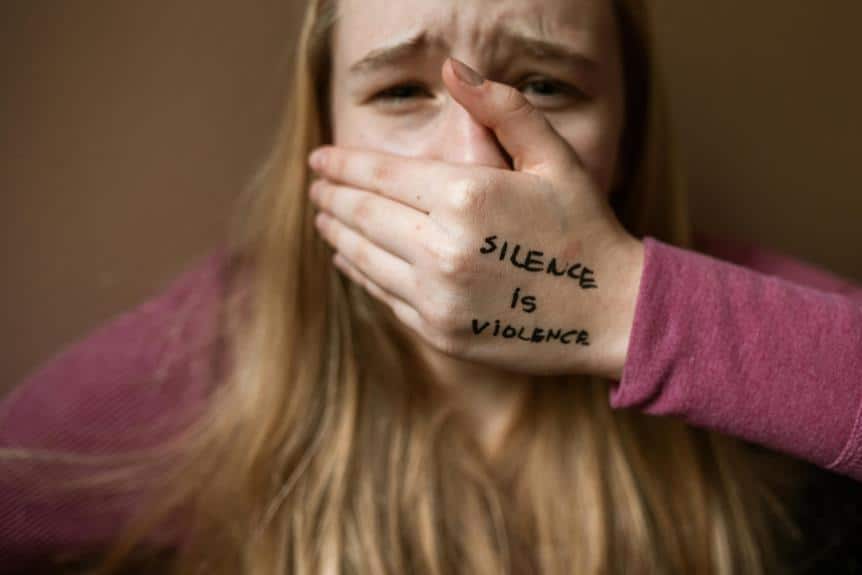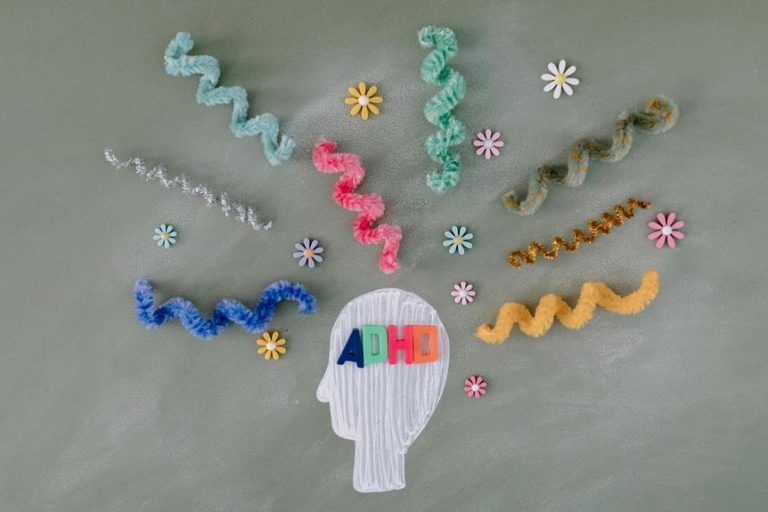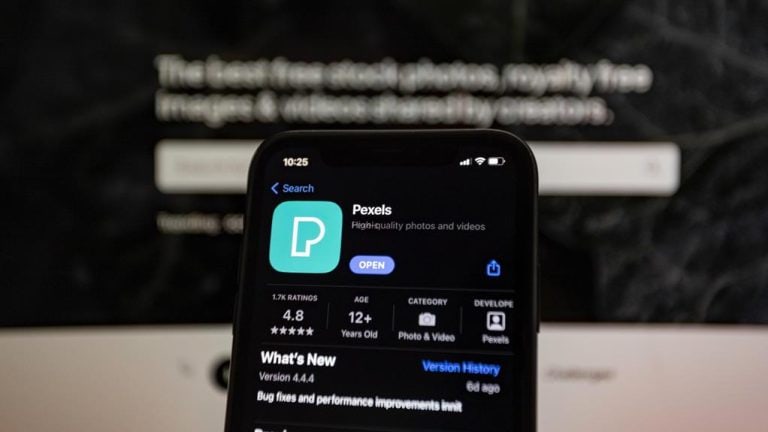Toxic Empathy and Adhd
As I navigate the maze of emotions, it's like walking through a dense fog where every step is uncertain, and every sound reverberates with intensity.
Understanding the intricate dance between toxic empathy and ADHD can shed light on a complex interplay that impacts many individuals.
The way our emotions intertwine with those around us can shape our well-being in profound ways, leading us on a journey of self-discovery and growth.
Key Takeaways
- Toxic empathy impacts individuals with ADHD emotionally.
- Setting boundaries and seeking help are crucial.
- Recognizing toxic empathy leads to healthier relationships.
- Self-awareness and compassion are essential in managing toxic empathy.
Understanding Toxic Empathy in ADHD

What role does toxic empathy play in the context of ADHD, and how does it impact individuals with this condition?
Toxic empathy can play a vital role in affecting individuals with ADHD, as they may find themselves absorbing others' emotions to the point of neglecting their own well-being. For those with ADHD, who already struggle with regulating their own emotions, toxic empathy can become overwhelming. Signs of toxic empathy in ADHD include emotional exhaustion, blurred boundaries, and difficulty distinguishing others' issues from their own. It's essential for individuals with ADHD to recognize these signs and take steps to address them.
To manage toxic empathy, setting boundaries is essential. Learning to prioritize self-care and seeking professional help for emotional regulation can make a significant difference. By recognizing and addressing toxic empathy in ADHD, individuals can cultivate healthier relationships and improve their overall well-being. It's a journey that requires self-awareness, compassion towards oneself, and a willingness to seek support when needed.
Neurodiversity and Toxic Empathy

Exploring the intersection of neurodiversity and toxic empathy sheds light on the unique emotional challenges faced by individuals with ADHD. Emotional dysregulation, a prevalent issue affecting around 70% of adults with ADHD, hampers the effective management of emotions. Rejection Sensitive Dysphoria (RSD) further amplifies negative emotional responses in individuals with ADHD, heightening their sensitivity to perceived rejection. Those with ADHD often possess high levels of empathy, which, combined with autonomic nervous system activity, can increase sensitivity to subtle emotional cues.
Individuals with ADHD may find it challenging to establish emotional boundaries, leading to difficulties in managing toxic empathy. The link between ADHD and heightened emotional responses can worsen toxic empathy, affecting relationships and overall well-being. Recognizing and addressing these complexities is pivotal for supporting individuals with ADHD in exploring their emotional landscapes effectively.
Signs of Toxic Empathy in ADHD

Individuals with ADHD may often demonstrate signs of toxic empathy, including absorbing others' emotions as their own. This can lead to emotional exhaustion and a tendency to neglect one's own needs while prioritizing others' well-being. Some signs of toxic empathy in ADHD individuals include difficulty setting boundaries, over-identifying with others' problems, and experiencing emotional overwhelm that can eventually result in burnout.
Recognizing and addressing these signs is essential for maintaining emotional well-being and fostering healthy relationships. It's important for individuals with ADHD to understand that while empathy is a valuable trait, it's equally crucial to establish boundaries to prevent being overwhelmed by others' emotions. Learning to differentiate between one's feelings and those of others can help in managing toxic empathy and promoting self-care.
Managing Toxic Empathy Strategies

I find that establishing clear boundaries, being mindful of emotional triggers, and practicing healthy detachment are key strategies in managing toxic empathy for individuals with ADHD.
By setting limits on how much emotional energy I invest in others, recognizing what triggers my empathetic responses, and learning to detach without guilt, I can better navigate the challenges of toxic empathy.
These practices help me prioritize self-care and emotional well-being while fostering healthier relationships and emotional regulation.
Boundaries for Self-Care
Establishing clear emotional boundaries is important for individuals with ADHD to safeguard against emotional fatigue caused by toxic empathy. When managing toxic empathy, it's significant to prioritize self-care and set boundaries to protect your emotional well-being.
Here are some strategies that can help:
- Communicating limits effectively to manage overwhelming emotions.
- Seeking professional help or therapy to gain valuable insights and coping mechanisms.
- Developing emotional intelligence to navigate empathy challenges and establish healthy boundaries for self-care.
Recognizing Emotional Triggers
Exploring the complexities of toxic empathy in the context of ADHD involves recognizing and addressing individual emotional triggers that can intensify feelings of emotional exhaustion and burnout. Emotional triggers, such as high-stress environments or societal expectations to always be empathetic, can exacerbate toxic empathy, especially for women with ADHD.
It's important for individuals with ADHD to identify these triggers to manage their toxic empathy effectively. Setting boundaries and communicating limits play a key role in maneuvering emotional triggers and preventing emotional depletion.
Practicing Healthy Detachment
Practicing healthy detachment in relationships involves setting clear boundaries to preserve emotional well-being and prevent burnout. It's essential to recognize when to separate others' emotions from your own to maintain a balanced perspective.
To navigate relationships effectively and prevent emotional overwhelm, individuals with ADHD can practice healthy detachment by:
- Setting boundaries to prevent emotional exhaustion.
- Prioritizing self-care to maintain well-being.
- Using grounding techniques to stay emotionally balanced.
Setting Emotional Boundaries

When it comes to managing toxic empathy, establishing emotional boundaries is key for self-care and maintaining emotional well-being.
Communicating personal limits is essential in preventing emotional exhaustion and burnout, especially for individuals with ADHD who may struggle with regulating emotions.
Boundaries for Self-Care
Establishing and maintaining emotional boundaries is essential for individuals with ADHD to safeguard their well-being and prevent emotional exhaustion. It can be challenging for us to navigate the complexities of emotional regulation, but setting boundaries is a powerful tool for self-care.
Here are some key aspects to take into account:
- Recognize Your Limits: Acknowledge when you're feeling emotionally overwhelmed and need to step back.
- Communicate Assertively: Express your boundaries clearly and respectfully to those around you.
- Practice Self-Compassion: Remember that it's okay to prioritize your emotional well-being and set boundaries that support your mental health.
Communicating Personal Limits
Emotional boundaries can be a transformative practice for individuals with ADHD, offering a shield against emotional fatigue and fostering personal well-being. Setting and communicating personal limits is important, especially for those facing challenges in emotional regulation. As someone with ADHD, toxic empathy can easily lead to emotional exhaustion if boundaries aren't established.
By clearly defining and enforcing these boundaries, one can prevent the overwhelming absorption of others' emotions. Without emotional boundaries, individuals with ADHD may find themselves depleted and struggling to manage their own well-being effectively. Recognizing the significance of setting emotional boundaries is a critical step in managing toxic empathy and maintaining a healthy emotional balance.
Prioritizing self-care by acknowledging and respecting personal limits is crucial.
Recognizing Toxic Empathy Impact

Recognizing the impact of toxic empathy is essential for individuals with ADHD in managing emotional overwhelm and maintaining healthy boundaries. People with ADHD often find it challenging to regulate their emotions, making them more susceptible to toxic empathy. Here are some key points to keep in mind:
- Heightened Emotional Responses: Individuals with ADHD may experience intense emotional reactions, leading to increased vulnerability to toxic empathy.
- Difficulty Setting Boundaries: Struggles with establishing and enforcing personal limits can result in being overly affected by others' emotions.
- Treating Others' Problems as Your Own: One common sign of toxic empathy in individuals with ADHD is the tendency to internalize and overly invest in other people's issues, which can be emotionally draining and detrimental.
Understanding these signs and effects of toxic empathy is vital for individuals with ADHD to protect their emotional well-being and foster healthier relationships.
Overcoming Toxic Empathy Challenges

Traversing through the challenges of toxic empathy requires intentional self-awareness and proactive boundary-setting. Overcoming toxic empathy challenges involves recognizing the signs of emotional overwhelm and the neglect of personal needs. Prioritizing self-care is vital in managing toxic empathy, as it allows for the replenishment of emotional reserves. Seeking professional help can provide valuable strategies and insights tailored to individual needs.
It's important to establish and maintain emotional boundaries to prevent absorbing others' emotions excessively. Building a strong support network of understanding individuals can offer validation and perspective when handling the complexities of toxic empathy. Developing emotional regulation skills empowers individuals with ADHD to manage their empathic abilities effectively.
In my journey to overcome toxic empathy challenges, I've learned that setting boundaries and prioritizing self-care are foundational steps. Seeking guidance from professionals has provided me with valuable tools to manage emotional overwhelm. Building a support network of understanding friends and family has been a source of strength and encouragement. By honing my emotional regulation skills, I've become better equipped to manage toxic empathy and protect my well-being.
Frequently Asked Questions
What Causes Toxic Empathy?
Emotional boundaries, cognitive distortions, and self-care practices are essential in managing toxic empathy. Recognizing triggers and setting limits help prevent empathy exhaustion and emotional burnout. Prioritizing self-care is important to combat empathy overload and fatigue.
Is High Empathy a Symptom of Adhd?
Having high empathy isn't typically a symptom of ADHD. However, challenges with emotional regulation and social interactions can shape how empathy is expressed. Finding balance is crucial for maneuvering relationships effectively.
What Is Hyper Empathy Syndrome?
I experience empathy overload, struggling with emotional boundaries and empathetic burnout. Sensory overload leads to compassion fatigue and empathy exhaustion. Through improved emotional regulation, I seek balance between caring for others and prioritizing self-care for my well-being.
What Disorder Causes Lack of Empathy?
I think disorders like psychopathy, narcissistic personality disorder, borderline personality disorder, and antisocial personality disorder can cause a lack of empathy. These conditions can lead to emotional detachment, impacting our ability to understand and connect with others.
Conclusion
In the journey of managing toxic empathy with ADHD, remember that you're the captain of your own ship. Just like a lighthouse guiding ships through stormy seas, setting emotional boundaries can help navigate the rough waters of heightened sensitivity and burnout.
By recognizing the signs, implementing strategies, and overcoming challenges, you can steer towards calmer waters and prioritize your own well-being. You aren't alone in this voyage.







